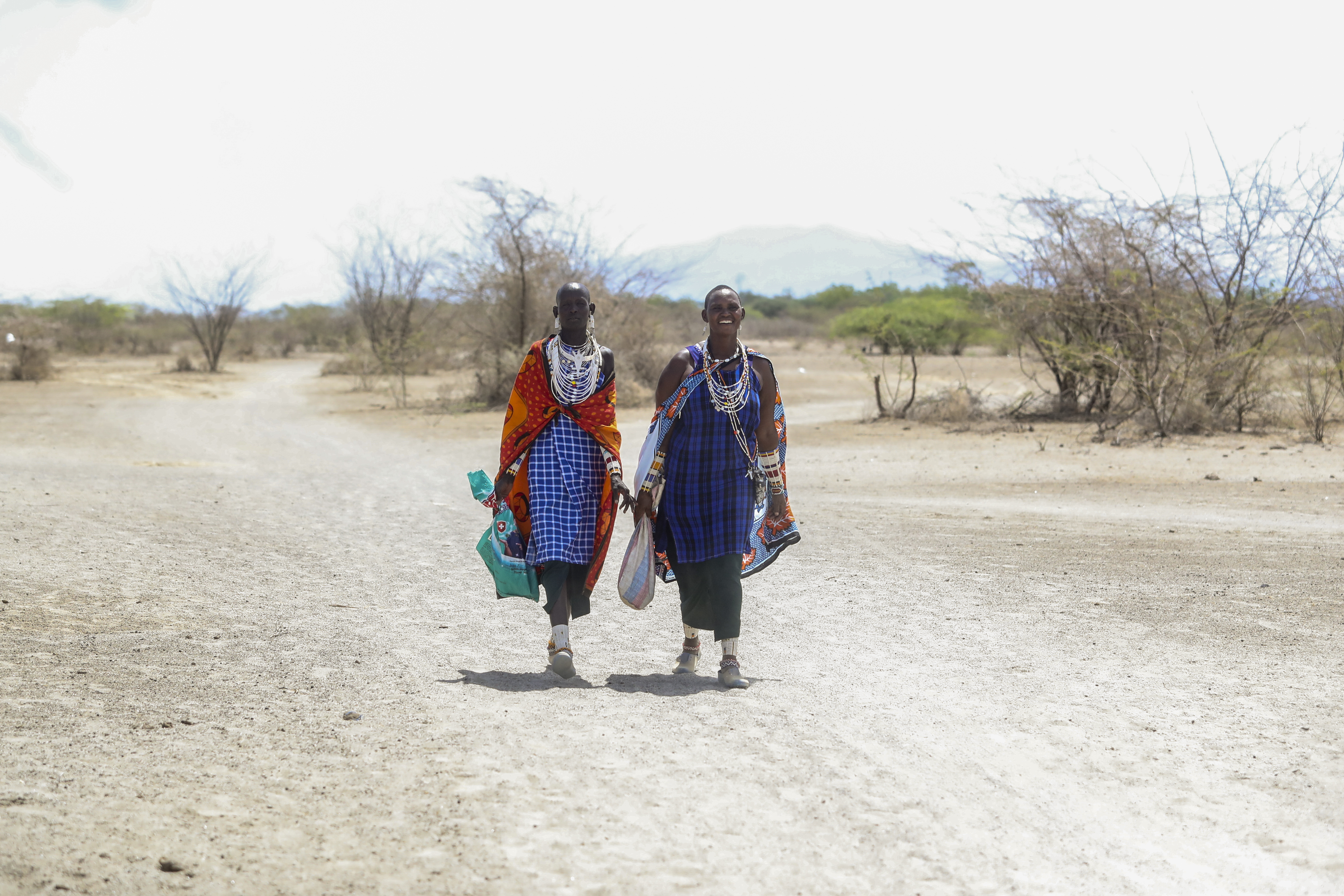Women's Rights & Issues
Related: About this forumWhy women's rights matter in COP27
Why women’s rights matter in COP27
The world must factor in the losses women disproportionately suffer, from education to security, due to climate change.
Sophie Rigg
Senior Climate and Resilience Adviser, ActionAid UK
Published On 14 Nov 202214 Nov 2022
 ?resize=770%2C513
?resize=770%2C513
Two Maasai women walk back home from a market in Ol Kiramatian, near Lake Magadi, in Kenya.
Maasai women walk back home from a market near Lake Magadi, in Kenya. Parts of the country have experienced four consecutive seasons with inadequate rain, with dire effects for people and animals [Brian Inganga/AP Photo]
This has been a year of climate catastrophes for every corner of the globe. From floods in Pakistan and Nigeria to the worst droughts on record across the Horn of Africa, no one on the planet is insulated against our rapidly worsening climate. Among the most disproportionately affected are women and girls. Yet their story is all too often just a footnote in the news. We know about the gendered impact of climate change from our work across the world. We have seen time and time again how women and girls are pushed to drop out of school or marry early to help manage the financial stress that families face during droughts or floods. New ActionAid research in Kenya, Rwanda, Zambia and Nigeria has found that climate change is also increasing gender-based violence and damaging women’s mental health.
As a warming planet leads to a rise in humanitarian emergencies and displacement, women and girls must not be left to pay the steepest price. In northern Kenya, Rosemary — a former farmer whom ActionAid works with — now needs to walk several miles farther than before to find water. Her community is facing extreme drought after consecutive failed rains, with 90 percent of all open water sources in their area now dry. This increased burden and the distances she has to go put her at greater risk of violence as she needs to travel, often outside daylight hours, to areas where she has no protection. Meanwhile, the drought and the invasion of a crop-eating worm pest have already destroyed her farm, once her main source of income. This has forced Rosemary into animal husbandry, but she faces the challenges of an unpredictable climate here too. Unable to access water and grassland, two of her cows recently died, pushing her further into financial precarity.
. . . .
But it doesn’t have to be this way. Women and girls on the front line of the climate crisis, like Rosemary, know what actions are needed and are important agents of change. Rosemary leads a local activist network that tackles violence against women and girls and provides guidance to young women on their human rights. This support is key for women and girls navigating the knock-on impacts of climate change and drought. Women like Rosemary are capable of building communities that are resilient to the challenges of climate change. But they need support to scale up their work and the opportunity to help decide how international, national and local climate finance is spent.
Yet, sadly, we know that the voices of the women on the front lines are not sufficiently heard in the grand halls and behind the closed doors where the big decisions are made, including at the ongoing COP27 climate change conference. This is particularly worrying in 2022 as the impacts of climate change escalate while international support for women like Rosemary remains scarce.
. . . . .
World leaders need to pay attention to stories like Rosemary’s. We need less rhetoric and a greater focus on women’s rights and actions to help them thrive and bring their communities out of poverty. Without this, the gendered injustice of climate change and the silent crisis for women and girls will only get worse.
https://www.aljazeera.com/opinions/2022/11/14/cop27-why-womens-rights-matter-cop27-climate